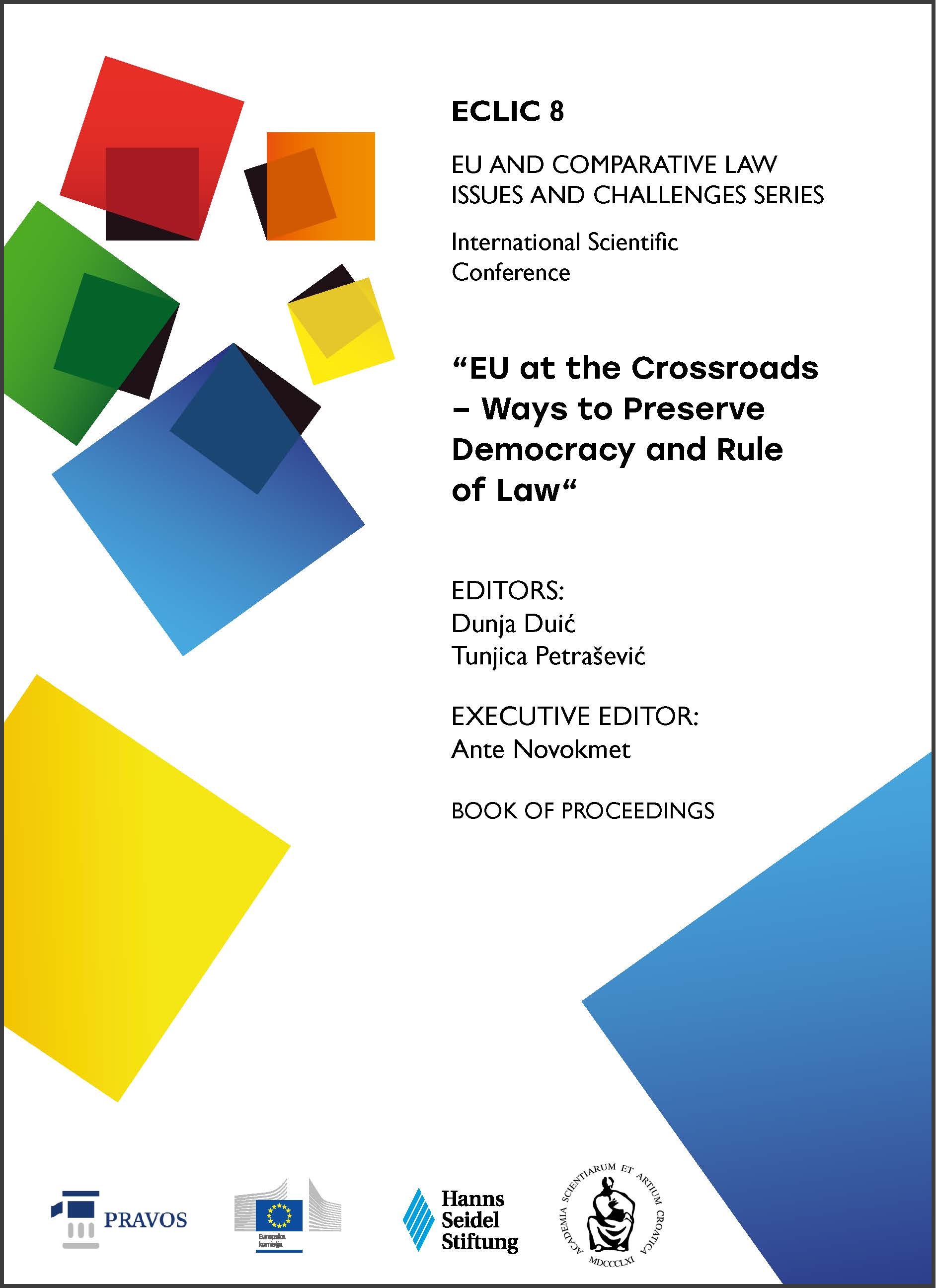THE PRINCIPLE OF MUTUAL TRUST IN JUDICIAL COOPERATION
A REALITY OR AN UNATTAINABLE IDEAL IN CRIMINAL MATTERS BETWEEN EU MEMBER STATES?
DOI:
https://doi.org/10.25234/eclic/32274Abstract
The principle of mutual recognition of judicial decisions among Member States was proclaimed as the cornerstone of judicial cooperation in criminal matters at the Tampere meeting in 1999. The implementation of this substantial and legally binding principle of EU primary law, since the entry of the Lisbon Treaty, is unattainable without a high level of mutual trust among Member States. The concept of mutual trust, crucial for enacting the principle of mutual recognition in criminal matters between Member States, lacks precision, yet the jurisprudence of the CJEU to some extent clarifies its boundaries. Starting with the logical presumption that all Member States, as outlined in the TEU, share common values of the European Union, including the rule of law and respect for human rights, a high level of mutual trust between Member States should be unquestionable. Consequently, judicial cooperation in criminal matters should operate seamlessly. However, CJEU decisions regarding the implementation of legal instruments of secondary EU law, based on principle of mutual recognition, such as the European Arrest Warrant (EAW) and the European Investigation Order (EIO), challenge this presumption. In the paper, the author scrutinizes CJEU jurisprudence, investigating shifts in stance on whether the principle of mutual trust constitutes an irrebuttable or rebuttable presumption in EU law. Special consideration is given to questions that arise in both cases. The author examines into pro and contra arguments of mutual trust as irrebuttable or rebuttable presumption in EU law, and its effects. Firstly, from the aspect that mutual trust between Member States, as irrebuttable presumption, reaffirms supremacy of secondary EU law and consequently primacy of EU law over national laws of Member States. Secondly, if the mutual trust between Member States in criminal matters is a rebuttable presumption, the decisions of CJEU show weak points of EU law in this area and they should be used as corrective measure to achieve overall aim of European Union: shared common values. In the paper, author emphasizes that all actions undertaken by EU are not strictly legal nature, but rather they are influenced by political decisions.
Downloads
Published
How to Cite
Issue
Section
License
Copyright (c) 2024 Ena Gotovuša

This work is licensed under a Creative Commons Attribution-NonCommercial 4.0 International License.
Authors retain the copyright on the papers published in the Journal, but grant the right of first publication to the Journal. Papers accepted for publication or already published in ECLIC of the Faculty of Law in Osijek may be published by the author(s) in other publications only with proper notice of its previous publication in ECLIC.


